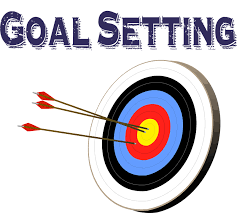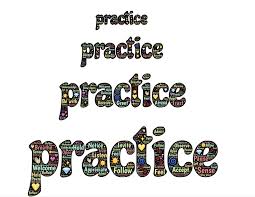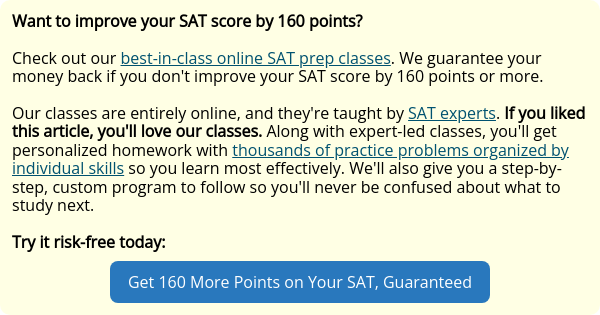
If you hope to get an amazing SAT score and improve your chances of getting into the college of your dreams, you'll need to know the best way to study for the SAT. But without a definitive study plan and the tools needed to study effectively, you won't be able to maximize your score, even if you put in tons of prep time.
In this article, I'll explain all of your SAT study options to help you figure out which ones are right for you, and also give you essential study tips for your SAT prep.
What's the Best Way to Study for the SAT?
The truth is, there’s no single best way to study for the SAT. Rather, there are multiple ways you can prep:
- Self-study
- Tutors
- Classes
- Online programs
- A combination of these options
The option you should choose will depend on your resources and what you need help with the most in your SAT prep.
Regardless of what you decide to do, your SAT studying should always involve several strategies that are essential for quality test prep. I’ll explain the various strategies you can use, and then go over how to decide which one is the right one for you.
4 Key SAT Study Strategies
No matter what SAT score you're shooting for or how you plan to get there, here are the strategies you absolutely must employ to raise your score.
#1: Determine Your Target Score
Before you begin your SAT studying, you'll need to figure out what score you’re trying to get on the SAT. Having a target score will motivate you and inform your studying.
To find your target score, look up the 75th percentile SAT scores for the schools you’re planning to apply to. Don’t include your safety schools—instead, only look up the scores for the schools you’re most interested in attending.
The easiest way to find SAT score info is to Google “[School Name] PrepScholar SAT” and look for your school's "Admission Requirements" page in our database. This page will tell you that school's average, 25th percentile, and 75th percentile SAT scores.
Here is an example of the our PrepScholar page for the University of Wisconsin:

Your target score will be the highest 75th percentile score out of all the schools you're applying to (again, excluding safety schools). If you achieve a score equal to or above the 75th percentile score for a given college, you'll give yourself a great chance of getting into that school.
For more tips on how to make an SAT goal score chart and find your target score, check out our article on good and bad SAT scores.

Goals are good.
#2: Figure Out How Long You'll Need to Study
You can get a rough idea of how long you’ll need to study for the SAT by calculating the difference between your target score and your current score.
Your current score will be the score from your last SAT, or, if you haven’t taken the SAT yet, your score from an official SAT practice test. (If you take a practice test, be sure to simulate real testing conditions as closely as possible!)
Here’s an estimated breakdown of the point improvements you can expect for various numbers of study hours:
- 0-30 point improvement: 10 hours
- 30-70 point improvement: 20 hours
- 70-130 point improvement: 40 hours
- 130-200 point improvement: 80 hours
- 200-330 point improvement: 150 hours+
Once you know how long you'll need to study, you can make a plan that'll let you put in enough study hours and ultimately hit your goal score on test day. For example, if you need to study about 40 hours to reach your goal and you're planning on taking the SAT in five weeks, you'll need to schedule at least eight hours of study time per week.
#3: Analyze Your Mistakes and Focus On Your Weaknesses
It’s not enough to just put in study time; you need to study effectively. You’ll make the best use of your study time by figuring out why you’re missing questions and by focusing on improving your weaknesses.
There are three major areas you might need to improve before you take the SAT:
Content
The SAT tests you on a number of skills related to reading, writing, and math. By determining the specific question types you’re getting wrong, you can identify the topics you need to study more.
For example, maybe you’re struggling with punctuation questions on Writing. Or perhaps you’ve been missing the small number of trigonometry questions on Math because you never learned SOHCAHTOA.
As soon as you know the topics that are most challenging for you, you can use your study time to understand them better and do a ton of related practice questions in order to improve your weaknesses.
Time
The SAT is a strictly timed test, and even if you’re comfortable with the content, you might struggle finishing each section in time.
If you’re somebody who either rushes (you finish a section more than five minutes early and make careless mistakes) or struggles to complete a section within the allotted time, you’ll need to work on your time management.
If you're running out of time, pay more attention to the time you spend per question on SAT practice tests. Here's an overview of the estimated time you should spend on each question on different sections of the SAT:
| SAT Section | Total Time | # of Questions | Time per Question |
| Reading | 65 minutes | 52 | 75 seconds |
| Writing and Language | 35 minutes | 44 | 48 seconds |
| Math No Calculator | 25 minutes | 20 | 75 seconds |
| Math Calculator | 55 minutes | 38 | 87 seconds |
| Essay (Optional) | 50 minutes | 1 | 50 minutes |
You might also need to improve your content knowledge or develop better test-taking strategies depending on why you're having trouble finishing in time.
Strategy
The SAT is known for having questions that can be confusing or misleading. If you struggle with understanding what a question is asking or often fall prey to common SAT tricks, you’ll benefit from improving your knowledge of SAT strategy.
For example, if you understand how to do all the math on the Math section but have difficulty interpreting the wording in certain questions, you should spend more time learning how to figure out what the questions are really asking.
If you're missing Writing questions because you're not sure how to read the passages, that's another sign you need to change and improve your strategy.
More generally, you're having problems with strategy if you can grasp the content being tested but struggle to understand and approach SAT questions.

#4: Use Realistic Practice Questions and Tests
Undoubtedly, the best questions to use are those that most closely resemble the questions on the SAT.
A huge flaw of many SAT prep books is that their practice questions aren’t exactly like those on the test. They’re either too difficult, too simple, or presented in a way that differs from the usual SAT question format.
It won't help your SAT score much to focus on questions not like those you’ll encounter on the SAT. Therefore, you should use the eight official practice tests provided by the College Board. Khan Academy, a free website that has partnered with the College Board, is also a good source of official SAT practice questions.
Other options for realistic questions are official PSAT practice tests (though these will likely be slightly easier than actual SAT questions).
Finally, because ACT Reading and ACT English are now so similar to SAT Reading and SAT Writing, you can use official ACT practice tests to supplement your Reading and Writing practice.
How Should You Study for the SAT? 4 Methods
Now that you know the strategies you must employ to study for the SAT, I’ll go through the various options for SAT studying to help you determine the best method for you.
Method 1: Self-Study
It’s possible to reach your target score by studying entirely on your own. Whether you've chosen to study independently or simply don’t have the resources to pursue other options, effective self-studying will require you to be extremely disciplined, organized, and motivated.
You should set a definitive study plan and stick to it as closely as possible. Other than real practice tests and SAT prep books, I highly recommend reading our SAT blog to further guide your studying. We've written tons of content and strategy guides for the Reading, Writing, Math, and Essay sections.
A major drawback of just relying on real practice questions or Khan Academy to study is that you won’t learn test strategies. These strategies, which are explained in our articles, will simplify the test and can help you improve your score.

Method 2: Private Tutor
A private tutor might be a good option for you if you’re looking for customized instruction or need more help learning the material that’s tested on the SAT.
Also, meeting with a tutor can help you stay on track if you need a little push. Keep in mind that tutors can be expensive and often vary greatly in terms of their knowledge and effectiveness.
Before hiring a tutor, learn what SAT tutors do and how much they cost. Equip yourself with the knowledge to decide whether you should work with a tutor or on your own.
Method 3: In-Person SAT Prep Class
In-person prep classes have a set curriculum, and, like tutoring, they’re a good option if you need help sticking to a study plan. A prep class can be a good fit for you if you want to learn test strategies and increase your familiarity with the SAT.
The best SAT classes will give you a solid foundation in SAT material and help you study more effectively on your own. Additionally, if you feel that you learn better in a traditional classroom setting, you might enjoy being able to socially interact with your peers.
Prep classes do have some significant drawbacks, though. In my opinion, the biggest drawback of a class is that it's not customized to your individual needs. Classes often have students of varying skill levels, and much of its content might feel like review or, on the contrary, might be too challenging if you've never been exposed to the material before.
I've taught a number of SAT prep classes, and, as a teacher, my biggest challenge was always trying to make my classes helpful for each student. In the same class, I had students who had just learned English and students who were excelling in their AP English classes. While students at every level did see improvement in their SAT scores after taking my class, admittedly it was impossible for me to perfectly address the needs of every student.
Depending on the length of the course, you might not have enough time to thoroughly cover all of the material on the SAT.
Furthermore, SAT classes can get expensive, with many costing more than $1,000.
Method 4: Online SAT Prep Course
Online prep courses can be a great option for students who want some structure but also the freedom to work independently. The biggest advantages of a good online prep course are that you’ll get an effective study plan and thorough content instruction. What's more, the course will be customized to your particular skill level.
I may be biased, but our PrepScholar program is an exceptional online SAT prep course. It focuses on improving your weaknesses, and all practice test questions are written by SAT experts who scored in the 99th percentile on the SAT.
Furthermore, as an experienced SAT teacher, I know that PrepScholar teaches effective test strategies that aren’t taught in many other in-person or online prep courses.
Like all other options, however, online SAT prep courses do have disadvantages. For one, you need to have self-motivation to push yourself to put in enough study hours. In other words, you won’t have the encouragement of a teacher or tutor to help you focus and stay on track.
Secondly, some students just learn better with an instructor in front of them who can immediately answer their questions and provide them with further explanation. While a quality teacher or tutor can keep you engaged with material you might not find too exciting, an online course can feel a bit distant and boring.

CollegeDegrees360/Flickr
How to Decide the Best SAT Study Method for You
Here are four key questions to ask yourself to help you determine your best way to study for the SAT:
#1: How Much Money Can You Spend on SAT Prep?
Although I think spending money on SAT prep is a worthy investment, some students simply can’t afford a tutor or prep course.
If you want to take a prep course but don't have enough money, talk to your school counselor or look online to see whether there are any free SAT prep courses available in your area. In my own experience, I’ve taught several free SAT classes through organizations that specifically cater to low-income students.
#2: How Do You Learn Best?
Personally, I’ve always preferred studying independently. In school, I learned better reading alone from a textbook than I did in class listening to my teacher lecture. So ask yourself: which of the SAT study options above will work best for your learning style?
Remember that you can combine study options, too. For example, you could primarily self-study and then hire a tutor for a couple of hours to help you understand a concept that's been puzzling you. Or, you could take an in-person prep course to learn test strategies and then take an online course for further content instruction.
#3: Will You Be Able to Stick to a Study Plan?
Self-studying and online courses work best for the most disciplined and determined students who are able to stay on task without the help of an instructor. However, even if you take a class or hire a tutor, you need to stay motivated to be able to do the necessary work to reach your goal score.
Consider your own study habits, such as how often you tend to procrastinate, and then choose the method that'll best suit your prep needs.
#4: How Much Guidance Will You Need?
If you're only around 50 points away from your target score, you might be able to reach your goal with a couple of weekends of self-studying or a short in-person prep course.
However, if you need to raise your score by a large number of points—say, 300 points or more—and you’re struggling to understand critical SAT concepts, you'd probably benefit from more intensive instruction, such as from a tutor, online prep course, or multi-week class.
Regardless of how you decide to study, as long as you improve your weaknesses, analyze your mistakes, and use realistic practice problems, you’ll get your desired results in no time!
What's Next?
Considering using Khan Academy to help you study? Find out how to get the most out of it in your SAT prep.
SAT practice test are an excellent way to prepare for the real SAT. But what about old ones? Learn how to use old practice SATs to study for the current SAT.
Ready to self-study for the SAT? Then make sure you're using the best SAT prep books currently on the market. Don't forget the best SAT websites, either!











